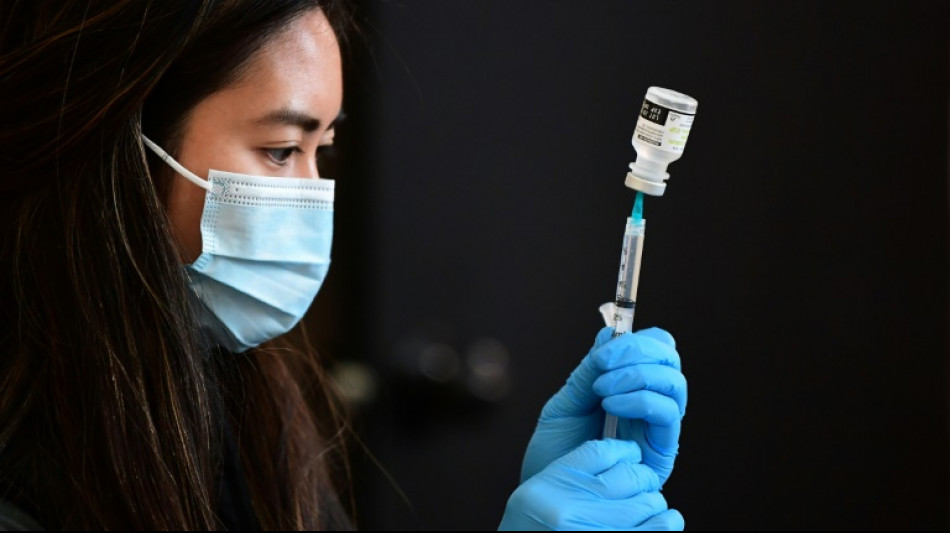
-
 Merino brace sends Arsenal past Slavia in Champions League
Merino brace sends Arsenal past Slavia in Champions League
-
Djokovic makes winning return in Athens

-
 Napoli and Eintracht Frankfurt in Champions League stalemate
Napoli and Eintracht Frankfurt in Champions League stalemate
-
Arsenal's Dowman becomes youngest-ever Champions League player

-
 Cheney shaped US like no other VP. Until he didn't.
Cheney shaped US like no other VP. Until he didn't.
-
Pakistan edge South Africa in tense ODI finish in Faisalabad

-
 Brazil's Lula urges less talk, more action at COP30 climate meet
Brazil's Lula urges less talk, more action at COP30 climate meet
-
Barca's Lewandowski says his season starting now after injury struggles

-
 Burn urges Newcastle to show their ugly side in Bilbao clash
Burn urges Newcastle to show their ugly side in Bilbao clash
-
French pair released after 3-year Iran jail ordeal

-
 Getty Images largely loses lawsuit against UK AI firm
Getty Images largely loses lawsuit against UK AI firm
-
Cement maker Lafarge on trial in France over jihadist funding

-
 Sculpture of Trump strapped to a cross displayed in Switzerland
Sculpture of Trump strapped to a cross displayed in Switzerland
-
Pakistan's Rauf and Indian skipper Yadav punished over Asia Cup behaviour

-
 Libbok welcomes 'healthy' Springboks fly-half competition
Libbok welcomes 'healthy' Springboks fly-half competition
-
Reeling from earthquakes, Afghans fear coming winter

-
 Ronaldo reveals emotional retirement will come 'soon'
Ronaldo reveals emotional retirement will come 'soon'
-
Munich's surfers stunned after famed river wave vanishes

-
 Iran commemorates storming of US embassy with missile replicas, fake coffins
Iran commemorates storming of US embassy with missile replicas, fake coffins
-
Gauff sweeps Paolini aside to revitalise WTA Finals defence

-
 Shein vows to cooperate with France in probe over childlike sex dolls
Shein vows to cooperate with France in probe over childlike sex dolls
-
Young leftist Mamdani on track to win NY vote, shaking up US politics

-
 US government shutdown ties record for longest in history
US government shutdown ties record for longest in history
-
King Tut's collection displayed for first time at Egypt's grand museum

-
 Typhoon flooding kills over 40, strands thousands in central Philippines
Typhoon flooding kills over 40, strands thousands in central Philippines
-
Trent mural defaced ahead of Liverpool return

-
 Sabalenka to face Kyrgios in 'Battle of Sexes' on December 28
Sabalenka to face Kyrgios in 'Battle of Sexes' on December 28
-
Experts call for global panel to tackle 'inequality crisis'
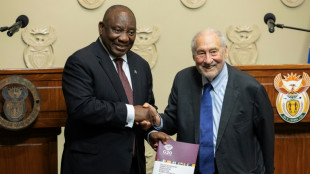
-
 Backed by Brussels, Zelensky urges Orban to drop veto on EU bid
Backed by Brussels, Zelensky urges Orban to drop veto on EU bid
-
After ECHR ruling, Turkey opposition urges pro-Kurd leader's release
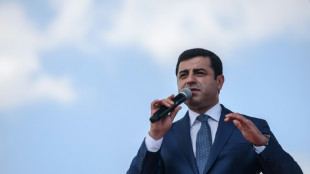
-
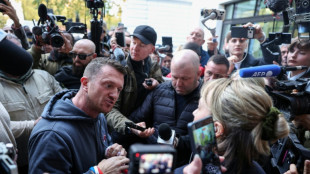 UK far-right activist Robinson cleared of terror offence over phone access
UK far-right activist Robinson cleared of terror offence over phone access
-
World on track to dangerous warming as emissions hit record high: UN
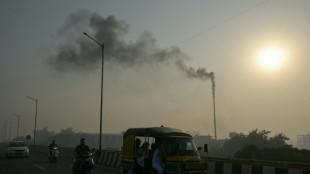
-
 Nvidia, Deutsche Telekom unveil 1-bn-euro AI industrial hub
Nvidia, Deutsche Telekom unveil 1-bn-euro AI industrial hub
-
Which record? Haaland warns he can get even better

-
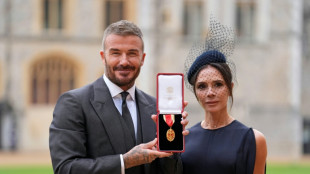 Football star David Beckham hails knighthood as 'proudest moment'
Football star David Beckham hails knighthood as 'proudest moment'
-
Laurent Mauvignier wins France's top literary award for family saga

-
 Indian Sikh pilgrims enter Pakistan, first major crossing since May conflict
Indian Sikh pilgrims enter Pakistan, first major crossing since May conflict
-
Former US vice president Dick Cheney dies at 84

-
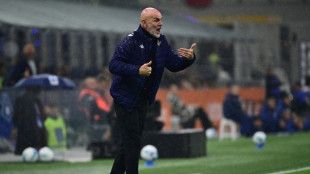 Fiorentina sack Pioli after winless start in Serie A
Fiorentina sack Pioli after winless start in Serie A
-
Oscar-winning Palestinian films daily 'Israeli impunity' in West Bank

-
 Spain's Telefonica shares drop on dividend cut, net loss
Spain's Telefonica shares drop on dividend cut, net loss
-
Fierce mountain storms kill nine in Nepal
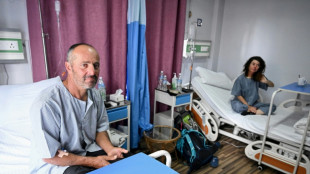
-
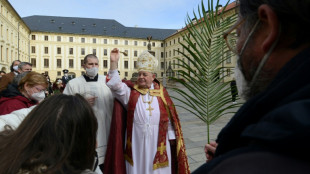 Divisive Czech cardinal Dominik Duka dies at 82
Divisive Czech cardinal Dominik Duka dies at 82
-
Shein vows to cooperate with France in sex doll probe

-
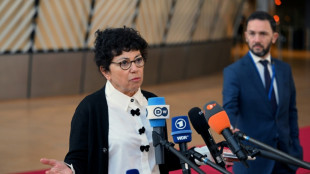 EU in last-ditch push to seal climate targets before COP30
EU in last-ditch push to seal climate targets before COP30
-
Finnish ex-PM Marin says her female cabinet faced torrent of sexism

-
 Sudan army-backed council to meet on US truce proposal: govt source
Sudan army-backed council to meet on US truce proposal: govt source
-
BP profit surges despite lower oil prices

-
 Shein vows to cooperate with France in childlike sex doll probe
Shein vows to cooperate with France in childlike sex doll probe
-
National hero proposal for Indonesia's Suharto sparks backlash
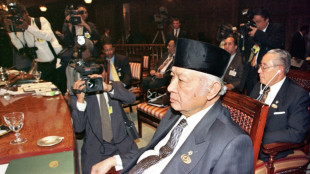

New US study helps de-mystify Covid brain fog
A small new study published Tuesday by scientists at the US National Institutes of Health suggests that the immune response triggered by coronavirus infections damages the brain's blood vessels and could be responsible for long Covid symptoms.
The paper, published in the journal Brain, was based on brain autopsies from nine people who died suddenly after contracting the virus.
Rather than detecting evidence of Covid in the brain, the team found it was the people's own antibodies that attacked the cells lining the brain's blood vessels, causing inflammation and damage.
This discovery could explain why some people have lingering effects from infection including headache, fatigue, loss of taste and smell, and inability to sleep as well as "brain fog" -- and may also help devise new treatments for long Covid.
NIH scientist Avindra Nath, the paper's senior author, said in a statement: "Patients often develop neurological complications with COVID-19, but the underlying pathophysiological process is not well understood."
"We had previously shown blood vessel damage and inflammation in patients' brains at autopsy, but we didn't understand the cause of the damage. I think in this paper we've gained important insight into the cascade of events."
The nine individuals, aged 24 to 73, were selected from the team's prior study because they showed evidence of blood vessel damage in their brains based on scans.
Their brains were compared to those from 10 controls, with the team examining neuroinflammation and immune responses using a technique called immunohistochemistry.
The scientists discovered that antibodies produced against Covid-19 mistakenly targeted cells that form the "blood-brain barrier" -- a structure designed to keep harmful invaders out of the brain while allowing necessary substances to pass.
Damage to these cells can cause leakage of proteins, bleeding and clots, which elevates the risk of stroke.
The leaks also trigger immune cells called macrophages to rush to the site to repair damage, causing inflammation.
The team found that normal cellular processes in the areas targeted by the attack were severely disrupted, which had implications for things such as their ability to de-toxify and to regulate metabolism.
The findings offer clues about the biology at play in patients with long-term neurological symptoms, and can inform new treatments -- for example, a drug that targets the build-up of antibodies on the blood-brain barrier.
"It is quite possible that this same immune response persists in Long COVID patients resulting in neuronal injury," said Nath.
This would mean that a drug that dials down that immune response could help those patients, he added. "So these findings have very important therapeutic implications."
C.Kovalenko--BTB




